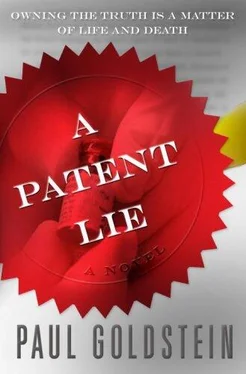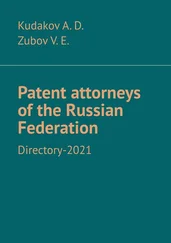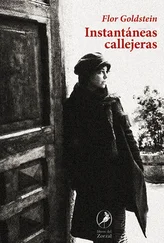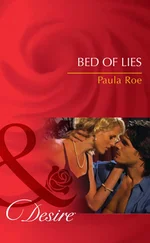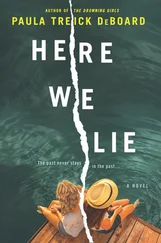Paul Goldstein - A Patent Lie
Здесь есть возможность читать онлайн «Paul Goldstein - A Patent Lie» весь текст электронной книги совершенно бесплатно (целиком полную версию без сокращений). В некоторых случаях можно слушать аудио, скачать через торрент в формате fb2 и присутствует краткое содержание. Жанр: Криминальный детектив, на английском языке. Описание произведения, (предисловие) а так же отзывы посетителей доступны на портале библиотеки ЛибКат.
- Название:A Patent Lie
- Автор:
- Жанр:
- Год:неизвестен
- ISBN:нет данных
- Рейтинг книги:3 / 5. Голосов: 1
-
Избранное:Добавить в избранное
- Отзывы:
-
Ваша оценка:
- 60
- 1
- 2
- 3
- 4
- 5
A Patent Lie: краткое содержание, описание и аннотация
Предлагаем к чтению аннотацию, описание, краткое содержание или предисловие (зависит от того, что написал сам автор книги «A Patent Lie»). Если вы не нашли необходимую информацию о книге — напишите в комментариях, мы постараемся отыскать её.
A Patent Lie — читать онлайн бесплатно полную книгу (весь текст) целиком
Ниже представлен текст книги, разбитый по страницам. Система сохранения места последней прочитанной страницы, позволяет с удобством читать онлайн бесплатно книгу «A Patent Lie», без необходимости каждый раз заново искать на чём Вы остановились. Поставьте закладку, и сможете в любой момент перейти на страницу, на которой закончили чтение.
Интервал:
Закладка:
Sansone, whose seat in the jury box was toward the center of the back row, had been watching Seeley intently for several minutes. Alone among the jurors, he didn't smile at the reference to Father Comisky.
It was time to wrap up. “As you listen to the testimony of St. Gall's expert witnesses, you may from time to time feel that you are losing sight of the forest for the trees. St. Gall's witnesses are going to testify over and over again-because, really, this is all they have-that Vaxtek's invention is too obvious to deserve a patent. They will testify that AV/AS was so obvious that any reasonably competent scientist could have invented it.” Here was Seeley's curve ball, the one that always worked. “Now”-he resisted the impulse to raise a finger for emphasis-“when Mr. Thorpe's witnesses, these experts, make this claim, I want you to ask yourself a single question. If AV/AS was so obvious that any competent scientist could have discovered it, why didn't St. Gall, with its 110,000 employees and dozens of laboratories around the world, do it first?”
Seeley took in all their eyes with a glance-for the first time, even the kid seemed impressed-then left the lectern.
At counsel's table, Barnum was beaming. Palmieri was smiling, too, but not as broadly. Behind the gallery rail, Leonard's eyes were glazed with admiration, a look that, even as a boy, Seeley thought would suffocate him.
A gray stooped profile, Thorpe moved slowly across the well of the courtroom to the lectern. When he spoke, it was so softly that the jurors in the second row-all but the kid-had to lean forward to hear him. Twice the court reporter asked him to repeat himself. Thorpe could have been sleepwalking, enveloped in a languor so profound that it threatened to silence him completely.
Seeley strained to hear as Thorpe unfolded the theory of St. Gall's defense. “Do you think that a company of St. Gall's size and reputation would undertake to produce an important pharmaceutical without first satisfying itself that the product infringed no valid patent?” Turning Seeley's theme of David against Goliath on its head, Thorpe was making St. Gall's size a mark of virtue. Big business should be trusted.
“Companies like St. Gall flee from patent infringement the way you would flee from a charging bull. St. Gall has in its files opinion letters from three leading law firms, each stating that AV/AS was an obvious, even trivial advance and, even if a jury were mistakenly to find the patent to be valid, that St. Gall's product does not infringe this patent. My client obtained analyses from the most expert university scientists around the world confirming that its product does not infringe. Do you imagine that a company of St. Gall's size and reputation would have done any less?”
As Seeley anticipated, Thorpe then teased out from his theory that big is good a second conclusion to reinforce the first. Thorpe looked directly at the jurors, but his voice remained subdued.
“If your life, or the life of someone you truly loved, depended on it, whose judgment would you follow: that of a lone, underpaid and overworked bureaucrat in the U. S. Patent Office, or the judgment concurred in by the world's leading researchers in the relevant field-the scientific experts that physicians themselves consult when they need answers to the hardest life-and-death questions-a judgment reached in each case independently and dispassionately.”
Seeley smiled to himself. As dispassionate as you can be when you are being paid handsomely for that judgment. On his legal pad, Seeley wrote a note to hit this fact hard when his time came to cross-examine St. Gall's expert witnesses.
Thorpe jammed his hands into the pockets of his suit jacket, silently studying the jurors one by one. Then he let his voice drop into the quietest whisper yet and concluded his opening statement.
“He's lost it,” Barnum said, his breath damp against Seeley's ear. “How can he expect a jury to believe in his case if he doesn't believe in it himself?”
“Puzzling,” was all that Palmieri said, snapping his laptop shut.
But Seeley knew that Thorpe's fecklessness was a ruse. This was the same man who last week dashed across the courthouse plaza to proclaim to the television cameras the certainty of his client's victory. But, if he was acting, what was the point? Was the purpose of the charade to get a jury that would not sympathize with a multinational drug company to identify with him instead? Pity me; pity my client. Had Thorpe, with decades of practice in San Francisco, misjudged the jury, or had Seeley?
TWELVE
On the witness stand, Dr. Nicolas Cordier was a portrait of rectitude: thin, almost cadaverous, he sat erect against the back of the leather chair, one long leg crossed elegantly over the other, hands loosely clasped on a knee. He could have been waiting for his introduction as the keynote speaker at a medical society meeting and not for his first appearance as an expert witness in a patent infringement trial. The plain navy suit, white button-down shirt, and old-fashioned plaid tie went with the gray hair cut short at the sides, longer on top. As Seeley walked to the lectern to begin his direct examination, Cordier brushed a recalcitrant lock back from his forehead.
Sunday's preparation had been trying. “What do you want me to say?” Cordier asked as Seeley put practice questions to him. “The truth.” Seeley had seen this before. A witness, rigorously honest in all aspects of his life, is suddenly daunted by the novel prospect of testifying in court. The physician shrugged. “Of course, the truth, but how do you wish me to”-he grappled for the word-“phrase this truth?” Seeley asked whether he had told the truth in his deposition. “Yes, of course.” Seeley had pushed the black binder containing Cordier's deposition across the table. “Then review this and make sure you stick to what you said.”
Now, at the courtroom lectern, taking Cordier through his qualifications as an expert witness-medical training in Toulouse, a pediatrics residency in Algiers, research at the Institut Pasteur in Paris, and seven years working in Africa for the United Nations AIDS agency-Seeley again worried about how the physician would tell the story of AIDS in Africa. Slow down, he wanted to say, think about your answers, or Thorpe will crush you.
At the edge of Seeley's vision, Fischler was conferring with Thorpe. Fischler rose. “May I approach sidebar, Your Honor?”
This was unexpected. Ordinarily Thorpe, as first chair, would be responsible for the leadoff witness. Thorpe remained at counsel's table, as gray and motionless as a gargoyle staring out at the proceedings.
The judge rolled her chair to the corner of the bench away from the jury. “So soon, Ms. Fischler?” There was amusement in her voice. “We haven't even heard a word of testimony.”
“Defendant is prepared to stipulate to Dr. Cordier's expertise in pediatric AIDS, Your Honor, but not in the demographics of AIDS. We're concerned that's where Mr. Seeley is going to take him.”
Farnsworth turned to Seeley.
“Defendant has Dr. Cordier's report and they've deposed him at length,” Seeley said. “They knew months ago what his testimony would be.”
“Until this morning,” Fischler said, “we didn't know he was going to be their lead witness.” She had wrestled her hair into a prim schoolteacher's bun for the trial, but still seemed discomposed. “This changes everything. His testimony's going to have a greater impact.”
That was why Fischler was in charge of Cordier. It was she who had deposed the physician. She had prepared herself for him, just as Thorpe had prepared for Steinhardt. Seeley was pleased at the unexpected windfall of his decision to put Cordier on first.
Читать дальшеИнтервал:
Закладка:
Похожие книги на «A Patent Lie»
Представляем Вашему вниманию похожие книги на «A Patent Lie» списком для выбора. Мы отобрали схожую по названию и смыслу литературу в надежде предоставить читателям больше вариантов отыскать новые, интересные, ещё непрочитанные произведения.
Обсуждение, отзывы о книге «A Patent Lie» и просто собственные мнения читателей. Оставьте ваши комментарии, напишите, что Вы думаете о произведении, его смысле или главных героях. Укажите что конкретно понравилось, а что нет, и почему Вы так считаете.
